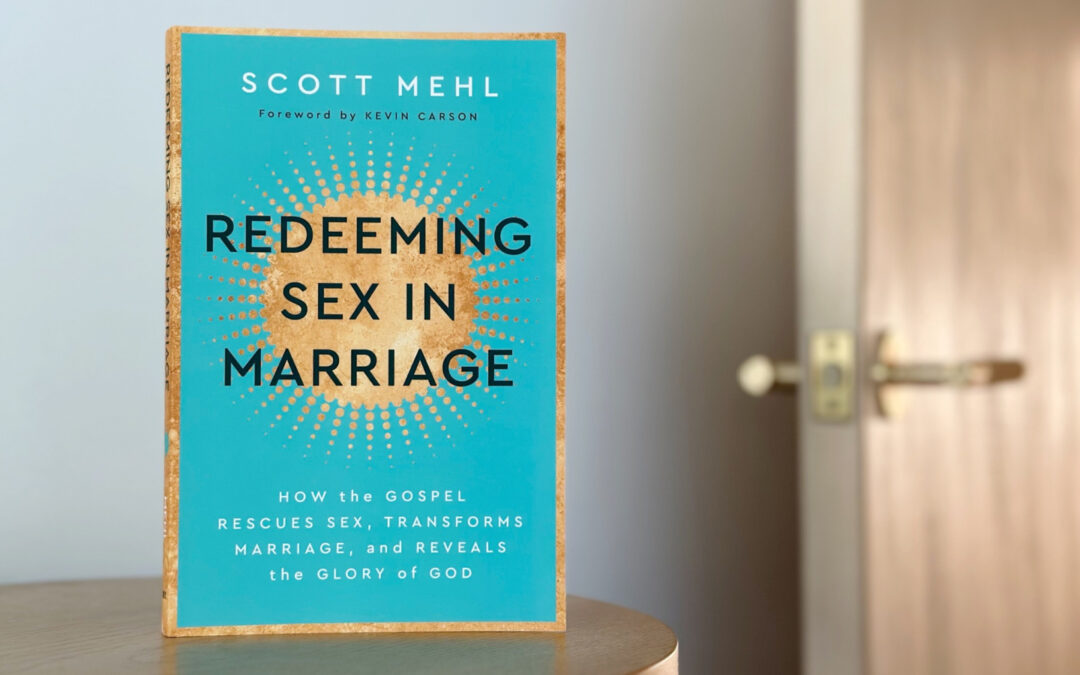Your roommate doesn’t come home when they said they were going to come home, and you worry. You hear rumors about a merger at your company and wonder what it will mean for your job, and you worry. You imagine all the things that could happen to your child while they’re away at school, and you worry. You watch the evening news or scroll through social media, and you worry. It feels like our world is becoming less and less safe, and an epidemic of anxiety is raging in response.
But how should we think biblically about these worries? Is it ever appropriate to be anxious? Is the goal of the Christian life to live unbothered by various troubles and seemingly unconcerned about their impact on our lives and the lives of those we love? Is stoicism our ideal? Or is the worry and anxiety we experience more complex and complicated than we realize?
In order to understand our anxiety, and the anxiety of those we counsel, we need to recognize that not all anxiety is created equal. Therefore, identifying the type of anxiety someone is experiencing will guide us forward in wisdom and love. As we think about how to best help anxious hearts, let’s consider two biblical truths and a common misconception about the problem.
Truth #1: Godly Concern Comes from the Heart
In Scripture, the Greek word merimnao is used to describe both ungodly anxiety and godly concern. In fact, in Paul’s letter to the Philippians he both exhorts the church to “not be anxious [merimnao] about anything” and praises Timothy for being “genuinely concerned [merimnao]” for the Philippians’ welfare. There is a kind of concern (anxiety) that Paul praises and that God is honored by. But what is it about this concern that honors God?
Godly concern is the natural outflow of a heart that is captivated by God’s love and bent toward a love of others (1 Pet. 1:22). Godly concern is rooted in an ultimate trust in God. It is confident in his wisdom, power, and goodness. And it longs, most ultimately, for his glory. As our hearts are captivated by God they overflow with love and care for others (1Jn. 4:11). We want others to be honored, more than we are honored ourselves (Rom. 12:10). We want others to be cared for, even when it requires our own sacrifice (1Jn. 3:16). We want others to see and glorify God, more than we want them to see and glorify us (Phil. 2:3). And this kind of God-centered, love-oriented heart produces a genuine godly concern. We are concerned about the things God is concerned about, and we rest in his power and control to ultimately bring them about.
God wants to affirm our godly concern (Phil. 2:20). He wants to nurture it in our hearts and encourage us toward more of it. When we find godly concern in the hearts of those around us, it shouldn’t be corrected but encouraged. Godly concern brings glory to God.
Truth #2: Ungodly Worry Comes from the Heart
And yet, our concerns don’t always reflect our trust in God or desire for his glory. Sometimes we desire our own will more than we desire his. As a result, we may become anxious that his will for our lives might be different than our own. Or we might lack trust in his goodness or power and become anxious to control things that are not ours to control.
This kind of self-focused or self-sufficient concern is what Scripture is referring to when it talks about ungodly worry. This is what Paul warned against when he told the Philippians to “not be anxious about anything” (Phil 4:6). It’s also what Jesus is referring to when he told his disciples plainly, “do not be anxious” (Matt 6:25).
Ungodly worry is the exact opposite of godly concern. Instead of being captivated by God’s love, our heart questions it. Instead of being bent toward others in love, our heart become bent inward, back in on itself. Our minds are flooded with fears and “what if” questions. Our days are spent imagining all the potential bad things that might happen. Even when suffering isn’t present in our life, we drag the potential suffering of our futures into the present and begin experiencing it before it even comes to pass.
When God’s word confronts ungodly worry, it’s because he wants us to live free from it. He desires to meet us in the midst of our concern to give reminders of his presence and faithfulness. He invites us to consider the beauty of the lilies (Matt 6:28) and the countless reasons we have for thanksgiving in our lives (Phil 4). More than that, he wants to nurture in us a confident trust in his goodness, power, and love.
Lie: Habitual Anxiety Comes from the Heart
But there’s a third type of anxiety we sometimes underappreciate as biblical counselors. In addition to godly concern, and ungodly worry, we can also experience what I like to call habitual anxiety. While habitual anxiety is also a response to a perceived future threat (just like godly concern and ungodly anxiety), it’s unlike these two other kinds of worry in one key way: it doesn’t ultimately stem from the heart but is produced reflexively by our fallen bodies.
Habitual anxiety is a recurring negative feeling (and/or an automatic physical response) precipitated by a previous loss or traumatic event. When our mind recalls a particularly painful memory, sometimes our body responds involuntarily. This is why your palms get sweaty when you get into a car the first time after you’ve been in an accident. This is why your heart starts racing when you enter a classroom as a parent—it reminds you of the stress you experienced decades earlier as a student. And these physiological responses can produce the emotional sensation of anxiety in our minds.
The experience of habitual anxiety is neither godly nor ungodly. Rather, it is the consequential result of suffering in a fallen world. While godly concern should be affirmed and ungodly worry should be corrected, when someone experiences habitual anxiety, we ought to respond with compassion and comfort, patience and reassurance. What’s most needed in the midst of their distress is the reminder of God’s comfort and love—not correction or affirmation.
As counselors, we may not always be able to distinguish between godly concern, ungodly worry, or habitual anxiety. Many of the emotional experiences we label as “anxiety” are a complex stew of all three. But having these three distinct categories will help us identify what kind of counsel is most needed based on what kind of anxiety is most pronounced. If someone is largely concerned for godly reasons and is striving (albeit imperfectly) to trust in God’s goodness, they ought to be encouraged. If someone is concerned about good things, but that concern has overtaken their life as they strive to take control of the things only God can control, they may need to be corrected. And if they’re striving to “put off” ungodly anxiety and “put on” godly concern, but continue to get tripped up by intrusive thoughts and visceral memories, it may be best to start with patient comfort.
All anxiety isn’t created equal. The type of anxiety someone is experiencing matters. Scripture teaches this clearly, and our lived experiences confirm it. Love takes the time to consider what type of anxiety a person is experiencing, and wisdom counsels in light of that consideration. May we all continue to pursue this kind of love and wisdom with everyone we’re called to minister to.



